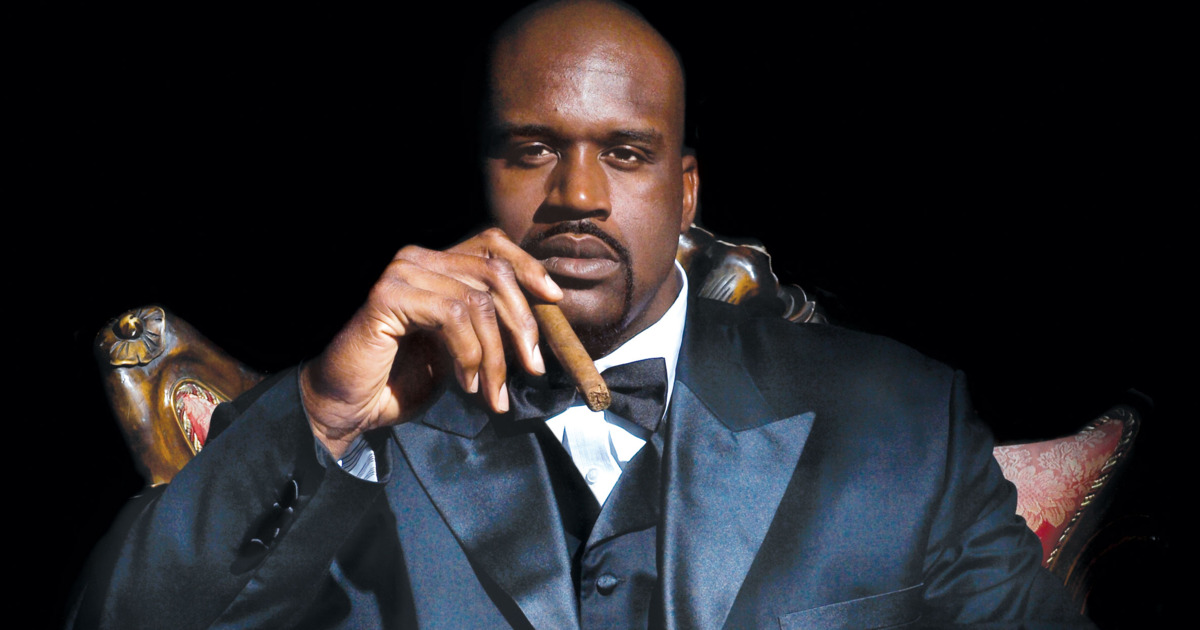Happy Holidays! Year-End Tax Saving Tips to Spend or Save for the Holidays

It looks like the end of the year is coming, and we are pretty sure many of you are still frantically shopping for gifts for your family and friends. Do you ever wish you had more money to spend for your friends and family, but just could not figure out how you can save more money?
Well have no fear! We are an Orange County CPA firm who will be here to provide tips on how you can cut tax spending to save or have more money to spend for you your loved ones.
Capital Gains and Dividends. The tax rate on qualified capital gains (net-long term gains) and dividends range from 0 – 20%, depending on the individuals income tax bracket.
STRATEGY: Spikes in income, whether capital gain or other income, may push gains into either the 39.6 percent bracket for short-term gain or the 20% capital gains bracket. Spending the recognition of certain income between 2016 and 2017 may help minimize the total tax paid for the 2016 and 2017 tax years.
State and local sales tax deduction. The PATH Act made permanent the itemized deduction for state and local general sales taxes. That deduction may be taken in lieu of state and local income taxes when itemizing deductions.
STRATEGY: Generally IRS tables based upon federal income levels and a taxpayer’s number of departments are used for this optimal deduction. Taxpayers who wish to claim more than the table amounts must provide adequate substantiation.
Tuition and fees deduction. The PATH Act extended the above-the-line deduction for qualified tuition and related expenses for two years, for expenses paid before January 1, 2017. The maximum amount of the tuition and fees deduction is $4,000 for an individual whose AGI (Adjusted Gross Income) for the tax year does not exceed $65,000 ($130,000 in the case of a joint return), or $2000 for other individuals who’s AGI does not exceed $80,000 ($160,000 in the case of a joint return)
STRATEGY: Payments by year-end 2016 may be particularly critical to taking this deduction. There is some – but not unlimited – flexibility regarding the deductibility of tuition paid before a semester begins. As with the AOTC, the deduction is allowed for expenses paid during a tax year, in connection with an academic term beginning during the year or the first three months of the next year.
Nonbusiness energy property credit. The PATH Act extended the nonrefundable non business energy property credit allowed to individuals, making it available or qualified energy improvements and property placed in service before January 1, 2017.
STRATEGY: Several overall limitations apply. A credit amount for qualified energy efficiency improvements equals 10 percent of the amount paid or incurred during the tax year and 100% of the amount paid or incurred for qualified energy property during the tax year. The maximum credit amount for qualified energy property varies depending on the type of property, further all nonbusiness energy property carries a $500 maximum lifetime credit cap.
Individual Shared Responsibility Payments. For 2016, the individual shared responsibility payment is the greater of 2.5% of house-hold income that is above the tax return filing threshold for the individual’s filing status or the individual’s flat dollar amount, which is $695 per adult and 347.50 per child, limited to a family maximum of $2,085, but capped at the cost of the national average premium for a bronze level health plan available through the Marketplace in 2016.
STRATEGY: Open enrollment for coverage through the Health Insurance Marketplace for 2016 has closed. However, some qualifying life events may make an individual eligible for non-filing season special enrollment.
Medical expense deduction. Taxpayers who itemized deductions (for regular tax purposes) may claim a deduction for qualified reimbursed medical expenses to the extent those expenses exceed 10% of adjusted gross income (AGI), unless the tax payer falls within an age-based exception. Taxpayers (or their spouses) who are aged 65 or older before the close of the tax year, may apply the old 7.5% threshold for tax years but only through 2016.
STRATEGY: Tax payers who are age 65 or older may consider accelerating medical costs into 2016 if they want to itemize deductions since the AGI floor for deductible expense rise from 7.5% to 10% in 2017. For deductions by cash-basis taxpayers in general, including for purposes of the medical expense deduction, a deduction is permitted only in the year in which payment for services rendered is actually made.
A Smart Business Decision Maker = A Successful Entrepreneur
December 19, 2016 by admin
Filed under Entrepreneurship

Many successful business leaders all share a common skill that most people do not posses. Although this skill comes in all forms and is dependent on the amount of opportunities given to them, they all still have to undergo a process whether it takes a long time to process or a very short amount of time. That skill, my fellow entrepreneurs is: Smart Business Decision-making. Every day people from all over the world make decisions. You may not realize it but you, the reader, just made the decision to read this article (Thanks by the way!). However, let’s take it to a business perspective; business leaders, (including yourself) “make dozen of decisions a day” that creates an impact to the success of their company while creating an influence factor to employees as well. “Developing such a skill requires a combination of education, experience, and intuition.”
Marci Martin, author of Business News Daily who wrote the article “How to Make Effective Business Decisions” has stated a great quote: “There are many things that influence how an individual makes decisions. They include emotions, perceived personal and professional risks and rewards, preparation through experience or education, deadlines, stress and a host of others. It is important to mitigate the irrational and embrace the rational.”
Many decisions always comes with a process, as mentioned above, there are many factors that come into play before coming up with a conclusion. Some of those decisions usually come from a “gut feeling” while others come from undergoing a long process of asking others, and a more common form would be the opportunity cost (Is it more beneficial to me than the cost?). As Martin mentioned, the “bottom line is that being an effective decision-maker requires practice.”
Gayle Abott, President of Strategic Alignment Partners, a human consulting firm, has implemented a four- point strategy to deploy whenever you must act:
– Identify the problem.
– Analyze the possible solutions
– Evaluate the possibilities that are likely to bring you closer to your goal.
– Make the decision.
However, as easy as this 4 point system sounds, this type of strategy does not come easily for any beginner. As Abott has said in Business News Daily, it takes years of practice to master this skill. Many people who have become masters did not simply start off as talented decision makers, they made many mistakes in the past, learned from them, and simply moved on. The most crucial part in any decision making in a business, is the ability to learn from them. It is not easy as you think it is because people still make the same mistake, whether it’d be motivated by an emotion, by influence, or by stubbornness. The reality is that, it will not be easy to become a smart business decision maker until you have made enough decisions to consider yourself a smart business decision maker.
8 Things Entrepreneurs Do Differently
November 16, 2016 by admin
Filed under Business News

Entrepreneurship goes beyond Elon Musk and Mark Zuckerberg. It is mostly an approach to life that favors creativity over conformity and action over inaction. Author and investor, James Altucher says that “Being an entrepreneur doesn’t mean starting the next Facebook.” Or even starting any business at all. It means finding the challenges you have in your life, and determining creative ways to overcome those challenges. It means finding the challenges you have in your life, and determining creative ways to overcome those challenges.”
So even if you’re not tinkering away at the next world-changing invention or looking to set up shop in Silicon Valley, there are aspect to the entrepreneurial mindset that will enrich your work and life. Here are 8 things entrepreneurial people do differently.
– They’re brave enough to commit to their dreams.
- Entrepreneurs choose to forego the security and familiarity of a ‘regular job’ to live an uncertain and insecure lifestyle. It takes a lot of bravery to make that tradeoff, but for icons like Walt Disney, the potential reward is worth it.
– They think of their customers more than themselves.
- Entrepreneurs are rarely out to seek fame for themselves. Instead, they’re more concerned with the people they want to help or the problem they want to solve. This infuses their task with a layer of meaning that can be the difference between success and failure when things get tough. A quote said by Guy Kawasaki: “In your darkest, most frustrated hours, remember the value you are trying to add to peoples’ lives, the satisfaction you’ll feel, or the cause that you’ll further.”
– They never stop learning.
- Since they’re in the business of creating new products and inventing new ways of doing things, much of what entrepreneurs do can’t be taught in a classroom. They know that the most important lessons are learned through living, so throughout their lives, they remain open, flexible, and curious in order to absorb as much as possible.
– They never give up.
- Rarely does an inventor or entrepreneur success on the first try. To create something lasting and worthwhile, it usually takes years of hard work, focus, and dedication. An idea is just a starting point. Persistence is a critical element of entrepreneurship.
– They love failing.
- For most people, the fear of failure is entirely paralyzing, but for entrepreneurs, failure is something to embrace. It’s an indication of pushing the limits, and inevitable when one is constantly trying new things.
– They find and fill a need of the world.
- Entrepreneurs want to do more than indulge their own interests – they want to solve a problem or create a product that satisfies a need. Some started businesses because of frustration with an inefficient or defective system. Others were moved by a personal encounter with poverty or misfortune.
– They take old ideas and make them way, way better.
- While one might think that entrepreneurs are focused mainly on never-seen-before ideas, they often revamp an existing model or upgrade an outdated product. Sometimes, these reinvented ideas change the way we exercise, read, or eat.
– Above all, they act.
- Entrepreneurs execute when for many others, an idea simply fades into the past. They are masters of turning abstract into the concrete. This seemingly simple action is one of the great challenges of life and in the end, it’s what defines an entrepreneur.
***ARTICLE WRITTEN BY JOE VAN BRUSSEL OF HUFFINGTONPOST.COM***
How to Know What Passions to Pursue in Business
November 7, 2016 by admin
Filed under Business News

We all have that question where we ask ourselves: “I have a passion for a lot of things. How do I know which one I should really choose?
Well, we all have heard many times in our lives, if you want to make a living, do something that you love to do. But our biggest concern is: how do we know if your passions can become a successful business? Fortunately, according to entrepreneur.com. there is a formula for determining if an idea is a viable opportunity.
It is a two-step process.
First: You look at the idea itself and see if it meets the criteria for success.
Second: You examine the industry to see if it is an attractive field for launching a new business.
If you launch a true opportunity in an attractive industry, your chances of turning a passion into a viable business go up dramatically.
THE FIRST STEP
Most of us have several things that we are passionate about. The trick is to pursue the one that has the strongest probability for success. Start by evaluating each of your passions against the criteria for a true business opportunity. Here are the critical components:
– Need – You have to obtain first hand evidence that people really need your product or service.
– Experience – You need to understand the industry from working in it or from regularly using the products.
– Resources – Cobble together the resources to create an initial prototype of your product or service.
– Customers – You have to find customers how are ready to buy your product as soon as you launch venture.
– Model – You need a sound business model where pricing, costs and margins allow you to make a profit.
Let’s take one example: Marshall Miller is a great example of turning a passion into a true business opportunity. He had a corporate job for eight years that he didn’t like. On weekends to maintain his sanity, he would take to the skies parachuting, paragliding, and base jumping. He and his friends started talking about how they might make a living doing this. They approached GoPro about filming their feats and making the footage available to the company – this was the birth of the GoPro Bomb Squad. Marshall now has a number of companies that sponsor his jumps. He displays their logos on his helmets and parachutes, and provides incredible footage they use in commercials and custom videos. Marshall has been doing this full-time for nearly 10 years and is one of the top human flyers in the world.
THE SECOND STEP
The second step for turning a passion into a business is to launch in an attractive industry. Research suggests that about 30 percent of success in business is a result of the industry you enter. Some are more attractive than others. Here are some tips:
– Size – You want an industry with at least 50 million in sales, but not more than a billion, that means there would be too much competition.
– Growth – You want an annual growth rate of 10 percent or more which means the industry is not shrinking.
– Margins – You want gross margins on products of 40 percent to 50 percent and profit margins of 10 to 20 percent which means it is possible to make money.
– Competitors – You want a handful of competitors but not hundreds which indicates that the market is overly saturated.
– Customers – You want multiple market niches for your product or service as opposed to a single group of buyers.
In sum, list the things you are passionate about and see which ones can become true business opportunities. Then evaluate each industry to see which ones have the highest probability for success. When you launch a true business opportunity in an attractive industry, you can create the company of your dreams.
***ARTICLE BASED ON ENTREPRENUER.COM***
7 Businesses That You Can Start With Less Than $100
November 4, 2016 by admin
Filed under Business News

There are always many obstacles to starting your own business, but money is not always one of them.
Many people have dreamed of owning a business, however, the biggest problem that many people face is that the amount of capital it takes to start it up and to also keeping it running in order for the business to keep going for as long as it can. Over the years, people have done many odd jobs to work. It does not matter if you’re a handyman or an Orange County CPA, you can make extra money on the side.
You may think that is crazy, but you will be surprised after reviewing the 7 business ideas that can actually be launched with less than $100.
Start a Tutoring Business
- There are a lot of students who need assistance in every subject – whether if it is in elementary school or college. If you have this knowledge, then starting your own tutoring business can become an appealing business idea that requires almost no capital. After all, the students already have the learning materials with them.
Start a Homemade Gourmet Foods
- Whether if it is soup mixes, jellies, or chocolates, people love gourmet food products. And, since you already have a kitchen, you just need cooking supplies, packaging, and basic marketing materials to get started.
Affiliate Marketing
- If you have a blog with a fair amount of followers, then you can become an affiliate. Basically, this just means that you plug other people’s products or services. As an affiliate, you get a special link. Whenever a visitor clicks on that link and makes a purchase, you’ll get a commission.
Tax Preparation
- Preparing taxes is another necessity. But, most of us don’t have the time or knowledge to take of this task. If you’re up to date on the latest tax regulations and enjoy crunching numbers, it can be a nice business during tax season.
Start a Personal Trainer Business
- Even though healthy is a priority for most of it, it can be a challenge to not only stay on track, but also make sure that exercising is done correctly so that you don’t injure yourself. You can become a personal trainer and motivate and monitor people when they exercise.
Start a business in Importing products
- You can purchase products from overseas in bulk and start selling them at markup. This is a very effective way to start. Increase your spending as you increase your revenues.
Airnb Host
- If you have an extra room or home, then rent it out on Airnb instead of just sitting there vacant. One example, was that one of the clients who use Airnb, was able to make $3,000 per month last year just renting out a room downstairs.
***ARTICLE BASED ON JOHN RAMPTON’S ENTREPRENEUR.COM***
Tips on How Small Businesses Can Become a Firm of the Future
November 2, 2016 by admin
Filed under Business News

How can a business become a firm of the future?
Well let’s take a step back, what does it mean to become a firm of the future?
Let’s look at this example, a firm of the future has been “in business for decades, achieving success using a tried-and-true formula of providing high quality work and or providing great service and product.”
Every year as we all witness the everlasting change of businesses, markets, and demands, we; as business owners sometimes worry about our methodology and business practices in our company.We begin to question if our practices are obsolete now, or are they still working for our business? Then the next question arises, how would we grow the practice while maintaining the winning factors that made the firm what it is? And because of this, many business owners worry too much about these changes and will then take up too much time and money.
Thus, begs the question: How can do we become firms of the future? Well worry no more! As an Orange County CPA, it is our sole duty to provide fresh tips on how you can become a survivalist in the battlefield of business. We have tips here that will help you achieve that!
Do not ever assume that and changes in the market and business world do not apply to you. As George Forsythe states, “even successful and happy firms may not be working as effectively as possible.” Always have a strategic review and assess your plan to measure out the pros and cons to your strategy. If they are working, try to find something that will cause the plan to fail, always assume that there will be change in the future.
Figure out where you stand. Create a transitional step tool that a firm can take in its culture, talent, and clients. Use informal brainstorming to identify steps that can help you move your firm forward.
Set your own priorities. When you start reviewing your firm’s status, be sure to look out for employees who show a lot of promise in their work. Prepare them for the next generation of leaders, this will ensure the security of your company when you are training new leaders.
Do not reinvent the “wheel.” Do not try to create a completely new plan to face the changes your company is facing. Take some of your strategies and create a new way to make them better. Focus on the aspects of creating a simpler, more effective method of that strategy and execute it. Reinventing a new strategy not only makes your employees and partner learn a new method, which takes time, but also, the strategy may not work in this changing marketing and business world.
**ARTICLE BASED ON AICPA.ORG***
How to Start a Business as a Couple, Aww! <3
October 31, 2016 by admin
Filed under Business News

We all know that the benefits of starting a business with a loved one seem obvious: You’re working with someone that you trust, and whom you already you enjoy spending time with. There are plenty of high profile success stories- Cisco, Slideshare, and Popsugar were all started by couples-to serve as inspiration for marrying business and love. But even the best partnerships can be strained by the stresses of running a business. Finding dedicated time for a relationship when there are shared work responsibilities to be delegated, staff to be managed, and conflicts to be resolved is no joke. And that’s why when things go wrong, perhaps nobody has it worse than partner who are both in love and in business. The stakes can be so much higher.
Let’s take an example, Heather and Allan Staker used to have date nights. Then the married couple launched a startup together. “Friday date night would turn into eating Indian food in front of our laptops” Heather says. “I was starting to feel overwhelmed – we were always together, but we were always working. I went to see a life coach, who told me, “you’ve got to stay in love with each other, apart from your business.” So they came up with a rule; No computers on date nights. It wasn’t easy, but they stuck to it. And with technology banished, their special dinners became a time to connect and talk as spouses rather than as cofounders.
So how can you start a business as a couple successfully?
– Start with A Plan
- For many couples, starting a business together feels natural: The idea most likely came out of the relationship. One example is that a couple can start to figure all of the work together and sort them out into tasks for each individual in the relationship. What do we mean by that? Have the husband work a series of tasks while the wife works on another series of tasks. Plan out these tasks together, and then assign them whoever does the tasks.
– Keep It Professional
- Once a couple both go full time together for their business, there would be constant closeness between the two. Although the privacy for the both of them to be intimate with each other is going to be less than before, it is still necessary to stay professional for the sake of the employees and the business. Keeping it professional instead of calling each other “babe” or other silly words would make the work environment more product, you never know, one of your employees may be feeling lonely with their love lives.
– Set Expectations Early
- Before pouring all your coupled energy into a budding business, it’s important to set parameters of where work ends and where life begins. For the Staker’s (Indian Food example), the no laptop rule was a romance life saver and it inspired additional at-home rules. For some others, the marriage becomes all about the work- and that can be ok too. An added benefit of married business partners is not being nagged on the weekend or on vacation to unplug, as spouses often do. A cofounder gets how impossible that is – and they’re right there next to you, clicking through emails. Make plans to do things together other than work to keep the relationships alive while keeping the business running well.
***ARTICLE BASED ON ENTREPRENEUR APRIL 2016***
Look At How Shaq became a Successful Business Man!
September 16, 2016 by admin
Filed under Business News

We all know who Shaquille O’Neal is; the notorious 7 foot 1 inch basketball player who has been playing in the NBA League for 19 years!
When we were all watching him play in the court, we probably all never thought that this guy would make it BIG in the business world. We probably all wondered what this man was going to do when he retires from basketball at some point during his basketball career.
Well guess what… This man has made it, and he is probably more successful than most people in the world! In fact, he even already made a name for himself out there before he even retired as a “media personality and commentator.”
Wanna know how much Shaq is worth today?
According to The Richest Mag, his estimated worth is a whopping number of more than a quarter of a BILLION dollars! (More than $350 million to be exact) That’s insane! Well, of course, along with his earnings from his long-playing career in basketball.
WHAT HE DID AFTER HIS RETIREMENT FROM THE NBA
Shaq has been venturing off into many different aspects of business, and actively looking to find something that will not only peak his interest, but also find opportunities for growth in his earnings from NBA. Although he is still somewhat active in the media, he is also looking for ways to grow his money by investing his money carefully without exposure of his business activity in the media.
Most of us probably know that he owns restaurant franchises like 5 Guys, but do you know how many he actually owns?
If you guess a number less than 100, then you’re just like most people! If not, good for you! He owns 155 different locations! Think about it, he owns 155 locations, he gets a percentage from each of the franchise’s annual profits, and lets assume that each of these franchises roughly nets him about $150,000 per year. Now multiply that number times 155. What do you get? 150,000 x 155 = $23,250,000! Shaq is literally making $23 million annually! WOW! (You can buy lamboghinis left and right!)
Not only does he own these franchises, he also made deals with food companies like Fruity Pebbles, Muscle Milk, Vitamin Water, and AriZona Cream Soda. One thing that makes Shaq a great business man is his good ethics, he chose these companies because he actually consumes these products. This will make him more genuine as an actual human being rather than a robotic psychotic business bot.
We will not get into too much detail here, but some of the other business industries that you should know that he owns are very notable:
– Fitness Franchises (Owns 40 24 Hour Fitness locations)
- He even added his own style to the gyms for branding (Smart Move Shaq!)
– Tech Investments (He invested in Google, before they went public! They were $85 per share in stocks, now they’re over $700!)
– Real Estate (Investing in real estate has been highly profitable for many athletes. He owns both residential and commercial properties that net him millions of dollars, not only that, he also likes to have fun while doing business, therefore he also owned nightclubs too in Vegas! How cool is that?!
Overall, Shaq is a very great example of a successful entrepreneur. Follow his example, you don’t have to be a basketball player to reach this level of success, all it takes is your interests, drive, and determination to make it big in the business world!
*Blog Based on Nat Berman’s article from moneyinc.com*
How Does your Passion Reach Success?
September 9, 2016 by admin
Filed under Business News

Imagine yourself doing something that you are most passionate about, and then making tons of money just by doing that “something” you are most passionate about.
How much better would your life be?
You can enjoy that lavish lifestyle, going out eating some delicious lobster with your buddies, going out to try that one wine bottle that you’d think you’d never get to try, or drive that Mercedes Benz model that you’ve dreamed about, picking up girls in the streets with your ride (or guys, whatever preference, no judgments here!).
The reason I ask this is that, I’d like to talk about a young individual who was able to make it big without having any sort of experience working in the business world, and then attempt to inspire the readers (you) that anything you do that you are passionate about can drive you to success. (Along with hard work of course.)
Connor Franta, an American Youtuber, entrepreneur, and writer, mainly created videos for his fans about his life, talking about his day and expressing his thoughts and opinions about everything while implementing a lot of humor into his videos. Not only did he make videos about his daily life, he also created many videos about relationship advice in which majority of his audience seems very interested in. Nonetheless, Franta enjoyed what he did that kept him going. Not only did he make videos, he was also very timely and persistent with his videos making sure that his audience was thoroughly entertained. In fact, he was always active with his youtube channel. However, his youtube fame did not last very long. Luckily, with his smart thinking about drive to become successful, he began taking different approaches to advance his passions. Since Franta is a coffee addict, (his fans also know) he began to take on the idea of selling his own coffee brands. He figured it would be beneficial to be authentic about selling something that he is crazy in love about.
How did he start this new product brand?
Franta began by approaching a company in San Francisco called Ritual Roasters, which was a wholesale company that had a variety of different coffee beans. The process was a simple one for him: He picked out the bean that he loved and then designed the package. Once it was created, he did a test run of the sales of the product in a span of 48 hours. At the end of it, he was able to sell thousands of pounds of the coffee! And from then on, it became an ongoing business. See what happens when you treat coffee like its your world?! YOU BECOME RICH!
How is he staying consistent with the coffee business?
Franta formalized his business, where he named his product Common Culture Coffee, under the umbrella brand called Common Culture. With his creativity and strategy to consistently produce revenue, he created a subscription plan for the coffee beans. The product itself is handled by his wholesaler company Ritual Roasters, while Franta manages the creative side by creating the new packaging of the beans. The most important aspect of his skills however, was the company presence. His company has more than 70,000 Twitter followers, and 160,000 on Instagram, and “is growing everyday” he says. His expertise is advertising, and still working to improve his advertising skills.
What did I learn from this?
Well, the most important thing to take away from this blog, is to understand what it took for this young indivdual to reach success. Someone who came from a completely different background, without any knowledge in the business world, who suddenly became a millionaire. The point is, anyone can become a millionaire if the passions and drive to become successful is there. As Franta would say “Never underestimate the power of pure passion” Look into what you love to do, and drive it into a business! You never know!
Worldwide Markets Lost More than $2 Trillion
June 27, 2016 by admin
Filed under Business News

The U.K.’s referendum to leave the European Union was a costly decision in more ways than one.
Worldwide markets hemorrhaged more than $2 trillion in paper wealth on Friday according to data from S&P Global, the worst on record.
Brexit is the biggest global monetary shock since 2008. This could be the tipping point that turns the existing global slowdown of 2016 into a global recession.
Since Brexit became a catchphrase for markets, risk-averse investors have destroyed vast sums of wealth in fear of the potential shockwaves that could ripple through the global economy.
In dollar terms, Friday’s loss overtook the previous record from Sept. 29, 2008, the day when Congress rejected a $700 billion bailout package for Wall Street during the financial crisis. On that day, global markets lost $1.94 trillion.




